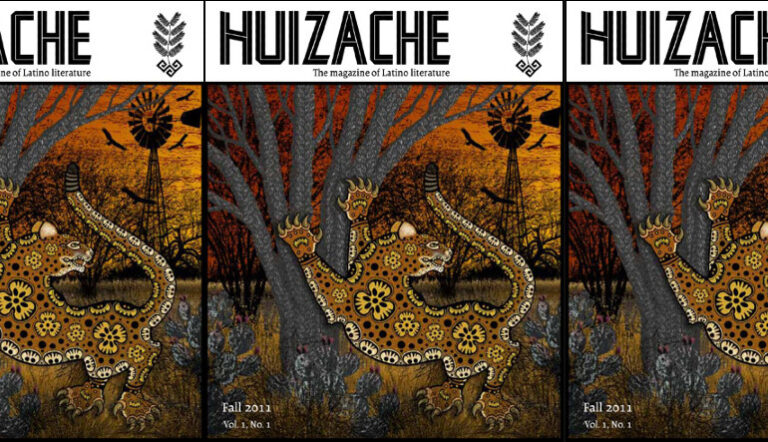Reading Across the Great Genre Spectrum: A Cheat Sheet for Transliterary Consumption

When I teach creative writing at the college level, one of the tasks I always assign early on in the semester is to have my students pick out a short work outside (preferably diametrically opposed to) the student’s preferred genre, read it, and offer a brief informal presentation of their experience. These reports always vary from pleasantly surprised (“I guess I never gave it much of a chance before, but I really enjoyed this”) to predictably frustrated (“Yep—this is why I’m not and will never be a poet”), but there’s rarely any question as to the value of the assignment. I’m forever asserting the importance of reading not just vertically—that is, deeply within one particular tradition—but also horizontally across the vast continuum of genres. Still, my conviction that writers of ilk A have much to learn from writers of ilk B sometimes goes challenged by one of my more strident students, and when that happens I’m quick to offer this little chart I scribbled upon a napkin one day, a modified version of which I share with you now.
(*Bold portions offer a hint as to which kind of reader may benefit most from being exposed to this genre.*)
Why Read . . .
POETRY?
Because there is nothing better for bolstering one’s underdeveloped vocabulary. Because for logically-minded people especially it is stubborn, resisting one pat easy answer; wild interpretations abound. Because it teaches the art of uncertainty. Because it helps one develop a sense of musicality and rhythm. Because it lives for strangeness and surprise. Because everything is possible here, and for type A rule worshippers it’s a welcome challenge to see controlled chaos poured out on the page so uninhibitedly. Because it insists feeling is first.
CREATIVE NONFICTION?
Because it breeds empathy, forcing those stuck firmly in their own skin into the body of another. Because it teaches the difference between an artless lie and lying in order to tell a greater truth. Because it offers a million free lessons in voice. Because it waltzes gracefully through memory, helping those incapable of wrangling their own to come to terms with their own testimony. Because it serves as a potent reminder that life is often far more interesting than fiction if only we strive to pay better attention to the seemingly unimportant minutiae.
SCIENCE FICTION?
Because it belongs to the kingdom of ideas. Because it forces those trapped in the present to confront a fast-approaching future. Because it allows for thoughtful meditation of societal ills in an easy to swallow, funky-shaped neon pill. Because it forces us to acknowledge human beings are not the only force in the universe. Because it lures the escapists by pretending not to be about the real and consequential world. Because robots!
YOUNG ADULT?
Because it reminds us how scared of the world we all once were and how terrifying the prospect of growing up was. Because for those of us who’ve forgotten how, it gives us permission to play again. Because it speaks volumes about reality by painting its own reality. Because for those who’ve gone a bit dry, it reignites the imagination.
ROMANCE?
Because it rescues the lonely from their loneliness. Because it suffers no shame of the human body and its desires. Because, for those tireless academics out there, it’s good to be reminded from time to time that reading doesn’t always have to be some erudite affair about unlocking every myriad universal truth of human nature—sometimes, a book is just a cheap entertaining escape, a way to get you through a bad day…and that’s OK.
MYSTERY?
Because it is a great teacher of how to be 10 steps ahead of your reader at all times. Because it consists of puzzles in book form, and that means good practice for those who haven’t had to put together pieces in years. Because it knows better than most how to manipulate tension: when to pull plot taut and when to let it loose again. Because it loves its antiheroes and hard-boiled detectives. Because for those of us with a sugar-coated view of the world, it reminds us gently that this place is also sometimes teeming with sinister villains lurking in the shadows of back alleys, scheming dark deeds, debauchery, even cold-blooded murder.
HORROR?
Because it maintains the most primal and human of all emotions is fear. Because it allows those of us with phobias to come face to face with our phobias, without actually having to come face to face with these phobias. Because that terrifying rush we get somehow makes us feel more alive. Because those of us raised on a steady diet of happy endings need to be reminded sometimes there actually is something under the bed. Because sometimes a scream is better than a thesis.
CLASSIC LITERATURE?
Because you’ll find some of the most beautiful sentences ever written here. Because, for those easy breezy pleasure readers out there, it’s good to be reminded from time to time that reading should be an erudite affair about unlocking every myriad universal truth of human nature. Because it captures portraits of the human condition with dignity and integrity. Because we needs many mirrors to hold to society. Because it is never finished saying what it has to say. Because if you’re convinced you’re alone in your suffering, it is a reminder that we’re all alone together. Because maybe your teacher was right all along.

